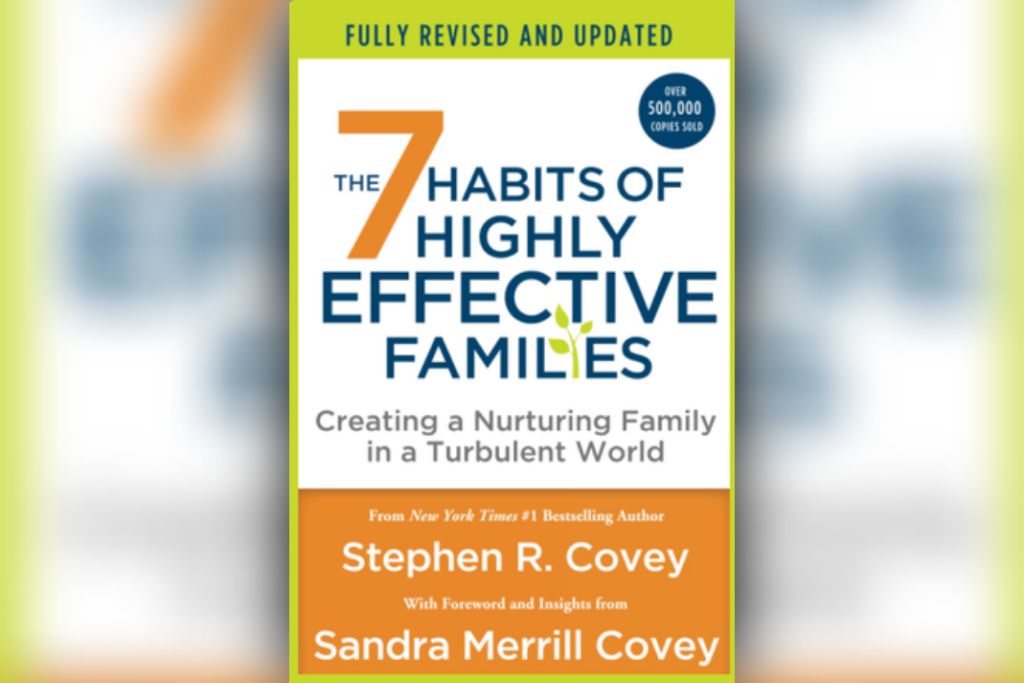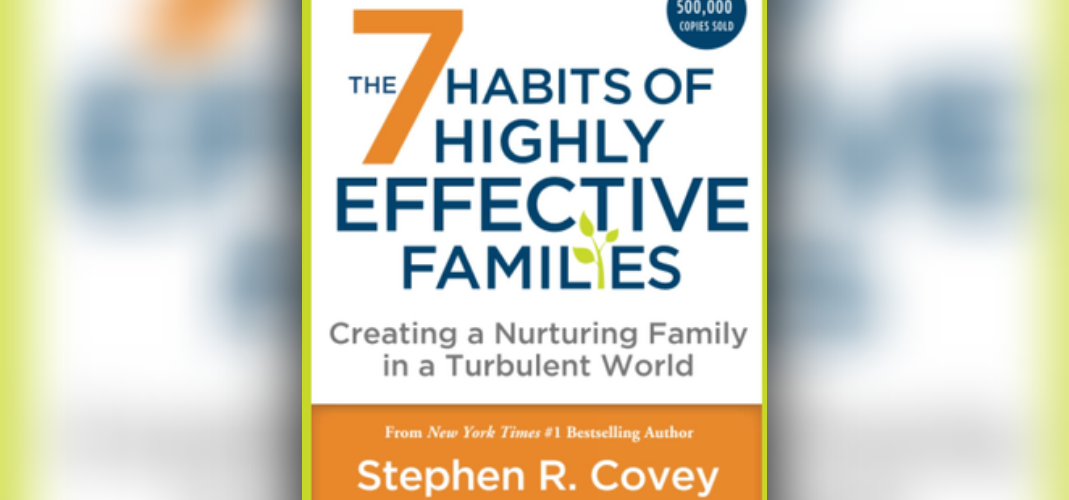In a world where distractions and competing priorities abound, finding balance and success within your family can feel like navigating a maze. Stephen R. Covey, a well-respected author and expert in leadership, offers invaluable insights into creating a strong and thriving family dynamic in his book « 7 Habits for Highly Effective Families. » Let’s take a closer look at the key principles of the book, examine how it influences family dynamics, and offer advice for those looking to strengthen their own family bonds.
Overview of « 7 Habits for Highly Effective Families »
« 7 Habits for Highly Effective Families » serves as a practical and stimulating roadmap, expanding on the principles introduced in Covey’s widely acclaimed book, « The 7 Habits of Highly Effective People. » Covey identifies seven fundamental habits that have the power to revolutionize family relationships and foster enduring happiness. These habits encompass proactive thinking, prioritizing family values, striving for mutually beneficial solutions, and honing active listening skills.

Stephen R. Covey was a notable figure in the realms of literature, education, and public speaking, renowned for his expertise in leadership and personal growth. He penned numerous bestsellers, including the immensely popular « The 7 Habits of Highly Effective People, » which has garnered a global audience. Covey’s writing style is characterized by clarity, brevity, and the incorporation of relatable real-life examples, making his teachings accessible and impactful. His works are celebrated for their ability to catalyze profound shifts in mindset, promoting positive change.
Critical Analysis of « 7 Habits for Highly Effective Families »
Plot and Pacing: While « 7 Habits for Highly Effective Families » deviates from conventional narrative structures, Covey masterfully employs anecdotal evidence and practical illustrations to effectively convey his concepts. The book is segmented into seven distinct sections, each dedicated to elucidating a specific habit. Covey’s deliberate pacing ensures that readers fully grasp each habit before progressing to the next, maintaining a cohesive narrative flow throughout the text.
Characters: Although there are no fictional characters or a traditional character arc in this book, the real-life stories shared by Covey serve as relatable examples of the habits in action. These stories allow readers to see the transformative power of the habits in various family contexts, making it easy to connect with the material on a personal level.
Writing Style: Covey’s writing style is accessible and engaging, making complex concepts easy to grasp. He combines personal anecdotes, research-based evidence, and practical exercises to help readers understand and implement the habits. Covey’s use of clear language and relatable examples make the book suitable for readers of all backgrounds and ages.
An Overview of the Key Principles in « 7 Habits for Highly Effective Families « :
At the heart of « 7 Habits for Highly Effective Families » lies the profound insight that cultivating robust family connections demands deliberate effort and a proactive approach. Covey underscores the significance of attentive listening, empathetic understanding, and fostering mutual esteem within the family circle. The book inspires readers to scrutinize their own behaviors and convictions, urging them to enact positive transformations for the betterment of their familial bonds.
To distill the essence of Covey’s teachings, here are the foundational habits elucidated in the book:
- Be proactive: Assume accountability for your actions and responses, concentrating on what lies within your sphere of influence.
- Begin with the end in mind: Craft a mission statement for your family and align your endeavors with your core values and aspirations.
- Put first things first: Place primacy on nurturing your familial connections and allocate your time and energy accordingly.
- Think win-win: Pursue resolutions that are mutually advantageous, considering the needs and viewpoints of all family members.
- Seek first to understand, then to be understood: Engage in active listening and empathize with others’ perspectives prior to articulating your own.
- Synergize: Embrace and celebrate the distinct strengths and diversities of each family member to foster collaborative and inventive solutions.
- Sharpen the saw: Perpetually invest in your personal and familial evolution through self-care practices and continuous learning endeavors.
Personal Reflection on “7 Habits for Highly Effective Families”
As a reader, « 7 Habits for Highly Effective Families » struck a chord with me on a profound level. Covey’s emphasis on intentionality and proactive behavior prompted me to reevaluate my own familial relationships. The book’s pragmatic strategies have proven invaluable in navigating conflicts and fostering a more empathetic atmosphere within my family.
Critique: Covey’s practical advice and relatable examples undoubtedly enrich the book, making its content readily applicable to real-life situations. Nonetheless, some readers might perceive the principles as repetitive or challenging to consistently implement over time.
Comparison: In contrast to other self-help books centered on family dynamics, « 7 Habits for Highly Effective Families » distinguishes itself with its holistic approach. While alternative resources may offer quick fixes, Covey’s principles advocate for a deeper understanding of oneself and others.
Rating: ★★★★☆ (⅘)
I rate « 7 Habits for Highly Effective Families » 4 stars. The book delivers transformative concepts and actionable strategies capable of profoundly influencing familial dynamics. Its only minor drawback lies in the potential repetitiveness for readers already familiar with Covey’s previous works.
Conclusion:
« 7 Habits for Highly Effective Families » emerges as a transformative guide, equipping readers with practical tools and profound insights for fortifying familial bonds. Covey’s expertise shines as he navigates readers through the indispensable habits essential for nurturing thriving family units. By embracing these habits, readers can cultivate profound connections, adeptly resolve conflicts, and establish a positive familial culture destined to impact generations.
For those intrigued by « 7 Habits for Highly Effective Families, » I suggest exploring further resources such as:
- « The Whole-Brain Child » by Daniel J. Siegel and Tina Payne Bryson
- « How to Talk So Kids Will Listen & Listen So Kids Will Talk » by Adele Faber and Elaine Mazlish
- « The Power of Habit » by Charles Duhigg
- « Parenting with Love and Logic » by Charles Fay and Foster W. Cline
I encourage you to delve into "7 Habits for Highly Effective Families" and share your reflections and experiences. Together, let's embark on a journey toward cultivating highly effective families poised for resilience and growth.
Source: This blog post draws upon personal reflections and critical analysis of Stephen R. Covey’s « 7 Habits for Highly Effective Families. »
































2 comments